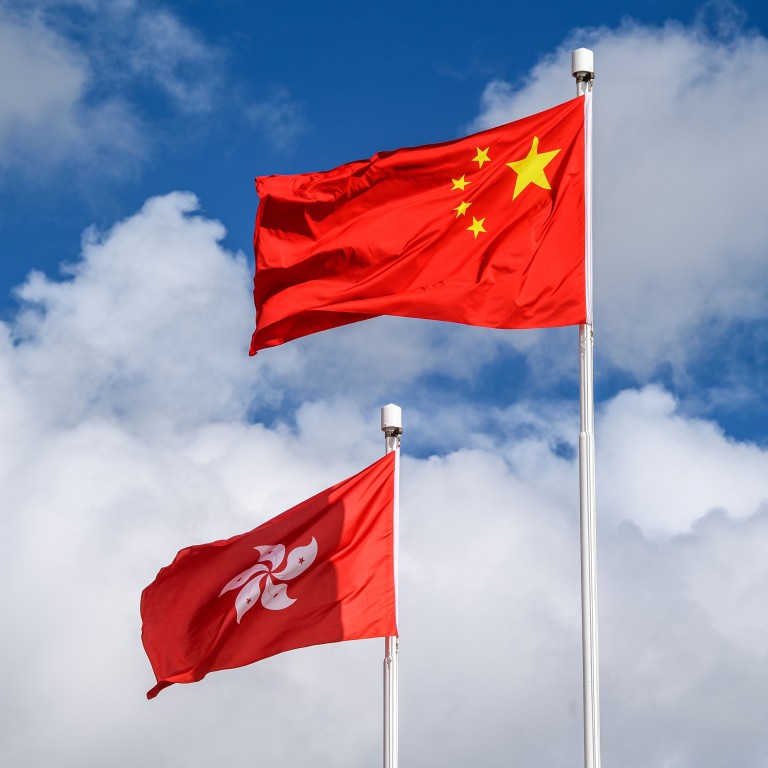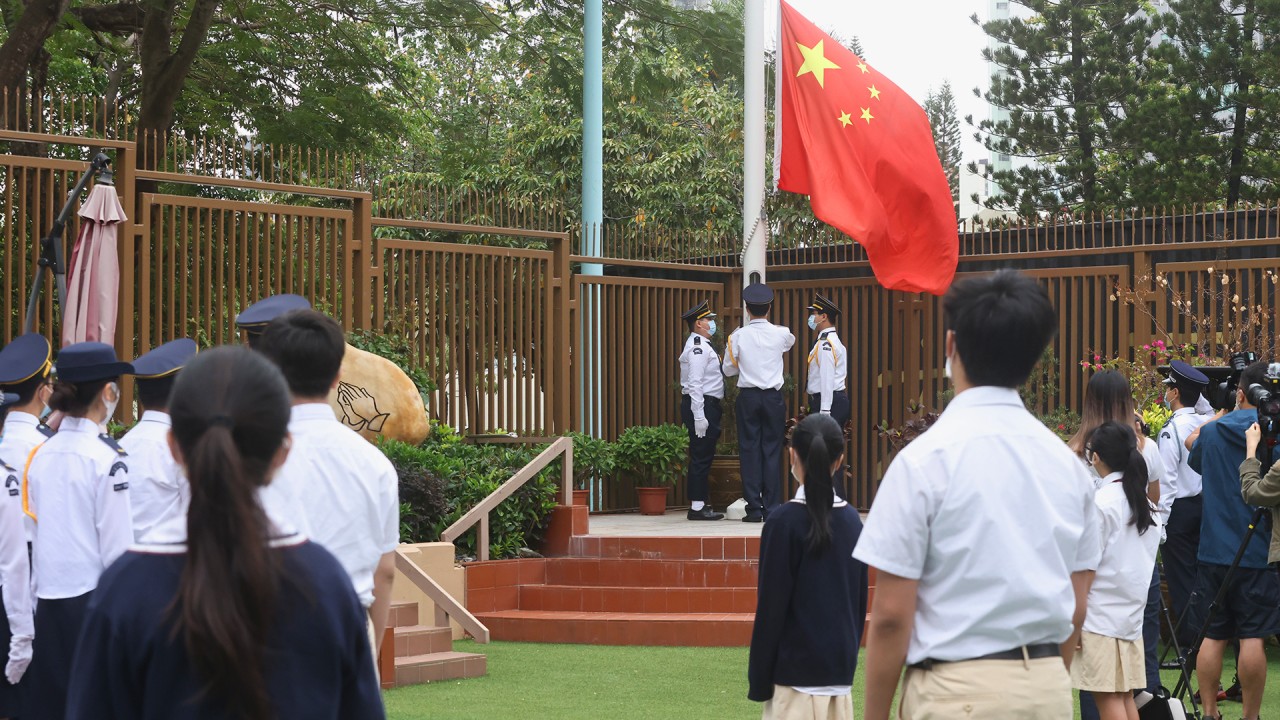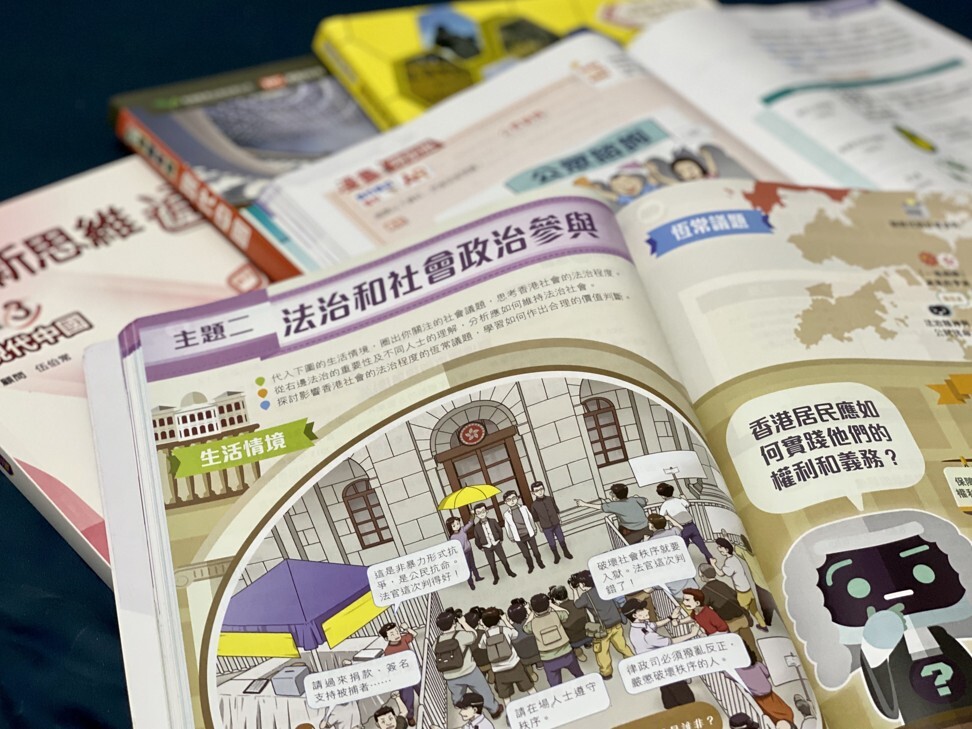
Four in 10 Hong Kong teachers want to leave the profession, most of them blame political pressure, survey finds
- Professional Teachers’ Union survey shows 10 per cent of kindergarten and school educators are resigning this year
- Senior school staff tell the Post they are noticing increasing numbers of teachers planning to leave in the wake of the national security law
Four in 10 Hong Kong teachers have decided or are inclined to leave the profession, with most citing increasing political pressure for wanting to quit, according to a survey by one of the city’s biggest trade unions.
Ten per cent of the 1,178 educators polled by the Professional Teachers’ Union (PTU) revealed they were resigning this year, while most of those looking to stay pointed to family and finances as their motivation.
Hong Kong schools told to do more to promote national security education
The landscape of the city’s education sector has been rapidly changing since the introduction of the Beijing-imposed national security legislation last June.
Schools have been required to incorporate elements of national security education into various subjects at the primary and secondary levels, and to review their library collections for material that could potentially breach the law.
Sweeping guidelines issued by the Education Bureau to schools in February suggested children as young as six should learn about the law’s four offences – subversion, secession, terrorism and collusion with foreign forces.
Schools were also told to call police in the event of “grave or emergency” situations relating to pupil behaviour, such as chanting or displaying slogans.
Beijing has also weighed in, saying Hong Kong schools should highlight patriotic education for young people and implement the principle of “patriots” governing the city for educators, while also removing “toxic” teaching materials from campuses.
PTU’s survey, conducted between April 29 and May 5 and published on Sunday, found about 40 per cent, or 474, of 1,178 kindergarten and school teachers polled had either already made plans to resign or retire early, or were inclined to do so but had not yet come up with concrete plans.

05:11
Hong Kong schools mark first National Security Education Day under security law imposed by Beijing
Fifteen of the 474 educators were principals or vice-principals at primary and secondary schools while 99 were senior teachers, in what the union called an “alarming” trend.
Of the 474 respondents, most of them – some 337 – cited “increasing political pressure” as their main reason for leaving the education sector. About 183 said “dissatisfaction towards education policies” was another reason to leave.
At least 133 said they had already quit, or decided to do so, by the end of the current academic year, while another 85 said they would depart over the next two years.
Meanwhile, the 704 teachers planning or inclined to stay in their roles were motivated by such considerations as “staying together with family” (58 per cent), “lack of financial capabilities” (53 per cent) and having “got used to life in Hong Kong” (44 per cent).
An Education Bureau spokesman, while stressing that it was “normal” for some teachers to quit every year, declined to comment on the accuracy of the survey, saying its sample was too small to represent the more than 70,000 educators in the city.
Sweeping new framework brings national security law into Hong Kong schools
Fung Wai-wah, president of the pro-democracy PTU, said: “Many of those who are leaving are more senior teachers with children; they may want to let them grow up in a relatively free environment. But it would not be easy to find people to replace the experience which they had accumulated over the years.”
Fung also said the recent overhaul of the liberal studies subject to introduce an emphasis on national education, and the deregistration of teachers, were some reasons why teachers felt under increased pressure.
At least three teachers have been struck off over learning resources , including one who drafted materials touching on Hong Kong independence and another accused by education officials of “defaming the nation”.

Three other principals told the Post that more teachers were leaving the workforce this year compared with previous years, while a separate survey by the Hong Kong Association of the Heads of Secondary Schools recently found 37 educators quit and emigrated between July and November last year, compared with 18 over the same period in 2019.
But Wong Wai-shing, vice-chairman of the pro-establishment Federation of Education Workers, has dismissed concerns of an exodus of educators.
“It is natural that individual teachers have their own personal considerations or are planning for their families, I believe there is no need to panic,” he said, adding he believed some of those emigrating would eventually return to Hong Kong.
Wong, deputy principal of Pui Kiu College, said some teachers were also planning to move to mainland China to teach, raising as an example the up to 70 Hong Kong teachers joining the college’s new branch in Shenzhen, which is due to open in September.

